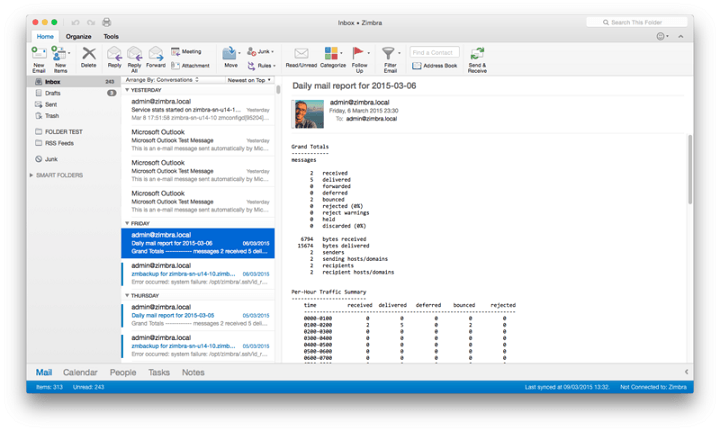

In the Export to Archive File (.olm) window that opens, select the items you want to export to OLM.However, you can create the OLM file manually by following these steps:
ARCHIVE OUTLOOK FOR MAC 2016 HOW TO
How to Open OLM File on MacĪs mentioned above, there is no default or pre-existing Outlook for Mac OLM file location. Subsequently, you can access your mailbox files. Once you have followed these steps, you can access Outlook 15 Profiles folder.
Check that the Show Library folder is selected and close View Options. Select View, and then select Show View Options. You can unhide the Library folder to access the Outlook 15 Profiles folder. In Outlook for Mac, the Outlook 15 Profiles folder is hidden by default. Outlook 2019 for Mac: Users/‹username›/Library/Group Containers/UBF8T346G9.Office/Outlook/Outlook 15 Profiles/Main Profile. Outlook 2016 for Mac: Users/‹username›/Library/Group Containers/UBF8T346G9.Office/Outlook/Outlook 15 Profiles/Main Profile. Outlook 2011 for Mac: /Users/‹username›/Documents/Microsoft User Data/Office 2011 Identities/Main Identity. You can, however, export the mailbox data to OLM manually.īy default, your Outlook mailbox data is stored in the following locations, depending on the Outlook version you are using: So, you can’t directly view OLM file on Mac outlook, and there is no default OLM file location in Mac Outlook either. In Outlook or Mac, the mailbox data isn’t stored in one particular file, but rather, each mailbox item is stored separately. 
In Outlook for Windows, the mailbox data is stored locally in a PST or OST file, depending on your email account (IMAP, MAPI, or POP3). Outlook is a popular email client, which is available for both Windows and Mac.






 0 kommentar(er)
0 kommentar(er)
